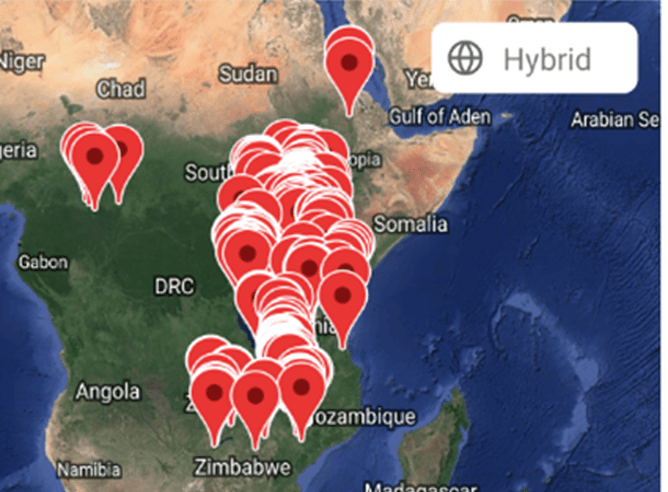Each month Sefton Marshall sends out “Office Matters.” And without fail he receives a response from Steve, a Kiwi field worker with a Christian not-for-profit who is based in the USA. The two men speak into each other’s callings, sharing their lives and faith across the miles.
Here are some excerpts of their exchanges to encourage you the way they encourage each other.
“‘Technology saves lives’ – I used to think this was a gross exaggeration and prideful stretch,” Steve Peacock wrote to Sefton Marshall, GC3’s Operations Director. “But I have actually seen with my own eyes how a good pump, and a monitoring system, can save lives.”
Steve is the Manufacturing Manager for SonSet Solutions. The non-profit finds technology-based solutions to challenges in the developing world, and brings both material help and the gospel to struggling communities.
Steve is a Kiwi based in the USA, but he regularly replies to Sefton’s updates with encouraging emails, and vice versa. In those emails he shares about his experiences in Africa, where much of the work takes place. During a trip to Zambia in early 2020, Steve met a village chief who had a received a new water pump. In expressing his gratitude, he showed Steve how critical this support is: “None of our children have died this year,” he said.
“A small amount of engineering goes a long way,” Steve wrote. “We do not need to build complex and expensive equipment for the hundreds of thousands of villages in the world. We need to solve one foundational problem: water. Then education, then medical etc. That is not Tesla-level engineering.”
For him, compassion for both souls and bodies are drivers. Steve said that they’re in it for the long haul and to see meaningful change, which involves more wisdom, commitment and love than it takes to set up some water pumps.
“I often reflect on how cultures change, and where they need to change, and why they don’t in some areas,” Steve wrote. “Should Westerners try to improve the use of funds in Africa? Yes. Can Africans in turn teach us how to have better relationships and family loyalties compared to the West? Yes.” It is a delicate balance between helping people positively and yet not negatively creating dependency. It’s the balance of influencing a culture for people’s good without erasing identity or history.
He said that whether we’re talking about Malawi or, as in Sefton’s experience, PNG, people may not handle finances the way we would, but they will help extended family with a medical bill. Those strong family ties, and the collectivist culture that grows them, do not and should not change easily.
The change Steve is praying for is in people’s hearts. He was encouraged by a trip to Malawi this March, where most days between 50 and 200 people came to faith. The ministry there on the ground, You Turn, runs six pastoral training and Bible schools so that new believers have pastoral care. Often, a newly graduated pastor comes to their village to plant a new church when needed.
“Each of these red pins on my phone app represent a village where we have installed pump monitors,” he wrote alongside a screen shot of Africa peppered with markers. The average population of those villages is 800. “Villages means people. People mean opportunities for the gospel!”
Mission is for the long haul. If you want to see people and ministries you care about go the distance, please come alongside them. Encourage workers with long-distance conversations, commit to regular giving and – above all – bring their needs and goals before the God of the harvest.

